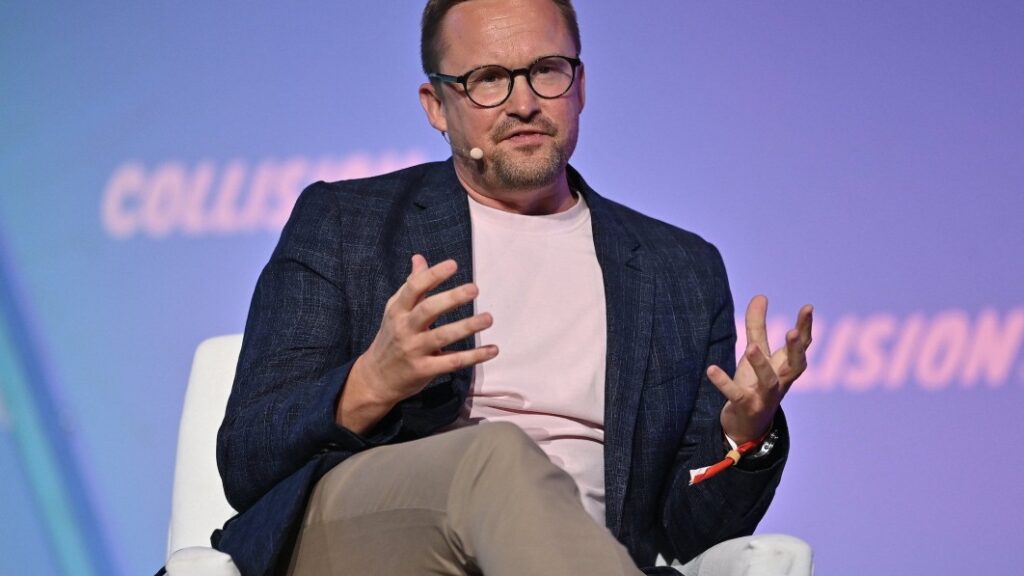Self-driving cars that can go anywhere are decades away, autonomous vehicle boss says

Oxa CEO Gavin Jackson has said that self-driving cars are “a long way” from being able to “drive everywhere.”
Piaras Ó Mídheach/Getty Images
Oxa CEO says that the industry is “a long way” from self-driving cars that can operate anywhere.
Gavin Jackson said collecting the huge amount of data needed to train vehicle AI was the main issue.
It comes as car companies like Cruise and Tesla face questions over their self-driving tech.
Fully self-driving passenger cars that can operate anywhere without human intervention are “decades away” from being a reality, according to the CEO of an autonomous vehicle company.
Speaking at the Google Cloud Next conference in London this week, Oxa boss Gavin Jackson said that the industry is “a long way away” from producing cars that can match or surpass human drivers, and said that such vehicles would need to become “local experts” before they could be trusted to drive on public roads.
“In our space, the ultimate goal is to have software that has the experience, the knowledge, and the expertise to drive everywhere,” he said.
“When it comes to generalized AI that can do that, we’re so far away from that. We are decades away from that being possible today,” he added.
Oxa, a UK-based startup that sells autonomous driving software, develops autonomous vehicles that travel on fixed routes, with self-driving features monitored by human safety officers. The company is focusing on urban public transport and commercial vehicles, rather than passenger cars.
The company has trialed its technology in refineries, solar farms, and mines, and has announced partnerships with autonomous transport companies eVerseum and Beep to integrate Oxa self-driving software into passenger shuttles in Europe and the US.
Jackson said that the main barrier to fully autonomous vehicles that can drive themselves under any conditions was the sheer amount of data that would need to be collected to train the vehicle AI to react to every possible situation that might occur while driving.
He pointed to generative AI as a potential solution, saying that Oxa was using the technology to simulate a range of different scenarios in order to uncover potential issues.
“There’s only so much data that you can collect from physically driving around, and when you’re trying to collect data in designated self-driving routes, you’re really waiting for weird or dangerous things to happen,” Jackson said.
“And the amount of data that you collect is nowhere near good enough, if you will, to cater for the near infinite things that could happen when you’re out driving — so you need a different way to test your software before it ever hits the road.”
The debate around “self-driving” vehicles has become increasingly heated in recent years. Robotaxi company Cruise received approval to operate 24/7 in San Francisco earlier this year, but agreed to cut its fleet of driverless taxis by half following several incidents of unmanned vehicles getting involved in accidents.
Cruises’ robotaxis do not require a human driver and are capable of operating on their own – but only in certain circumstances and geographical areas. They are still some way away from the holy grail of self-driving cars – a vehicle that can operate anywhere and under any circumstance without any human interference.
Elon Musk, meanwhile, has faced controversy over Tesla’s ‘Full Self-Driving’ feature, which was launched in 2016 and allows users to automatically change lanes, recognize traffic lights, and park, with critics arguing that it is deceptively named and suggesting that it poses a safety risk.
The company has always stressed that the feature requires a licensed driver to monitor it at all times.
Bloomberg reported in January that the SEC is investigating Elon Musk over comments made about the related Autopilot feature, including whether the Tesla CEO made inappropriate statements about the technology.
Gavin Jackson told Insider that “Level 5” autonomous vehicles that can operate on public roads without human interference are, for the moment, still a pipe dream.
He compared the challenges faced by self-driving software to passing ‘The Knowledge’, the famously difficult exam taken by London taxi drivers.
“You have to amass enough experience to know where you’re going, know the specific driving behaviors, all the shortcuts, know how to get from A to B in an efficient way. And that’s what self-driving software has to do” Jackson said.
“It needs to become a local expert wherever it is operating, and over time it will eventually amass enough experience across all of those nuanced places to apply that to more general situations — but that’s a long way away,” he said.



